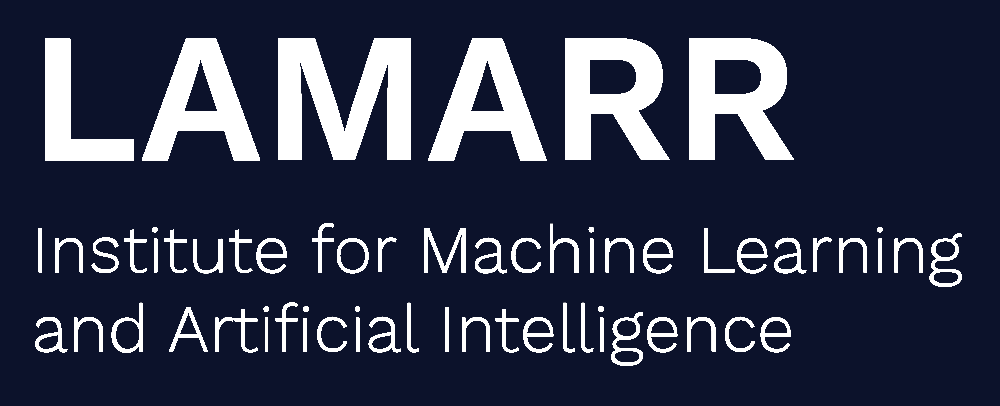Introduction
There is a great deal of interest in analyzing data that is best represented as a graph. Examples include the WWW, social networks, biological networks, communication networks, transportation networks, energy grids, and many others. These graphs are typically multi-modal, multi-relational, and dynamic. The importance of being able to effectively mine and learn from such data is growing, as more and more structured and semi-structured data is becoming available. Effectively learning from this kind of data poses several challenging problems, including:
- The necessity of a plethora of different techniques, including graph mining algorithms, graph embedding techniques, and other learning algorithms on graphs.
- Dealing with the heterogeneity of the data as well as information integration and alignment.
- Handling dynamic and changing data.
- Addressing each of these issues at scale.
Traditionally, a number of subareas have contributed to this space: communities in graph mining, learning from structured data, statistical relational learning, inductive logic programming, social network analysis, and network science. Our workshop will serve as a forum for researchers from this variety of fields working on mining and learning with graphs to share and discuss their latest findings.
Important Dates
Paper Submission Deadline: June 20th June 23rd (11:59pm, AoE), 2022
Author Notification: July 13th July 20th, 2022
Camera Ready: September 5th, 2022 September 12th, 2022
Workshop: September 23rd, 2022
Keynote Speakers
Schedule
Grenoble, France (all times are CEST)
All accepted papers will be presented in the poster session.
Two best papers will be selected as contributed talks and the remaining accepted submissions as spotlight
presentations.
| Schedule | |
|---|---|
| 10:30-11:10 | Opening and Keynote by Nils Kriege |
| 11:10-11:30am |
Best Paper Award Talk A Temporal Graphlet Kernel For Classifying Dissemination in Evolving Networks by Lutz Oettershagen |
| 11:30-12:00am | 1. Spotlight Session |
| 12:00:12:40am |
Keynote by Soledad Villar |
| 12:40-13:00am | Best Student Paper Award Talk GraphCoReg: Co-Training for Regression on Temporal Graphs by Harshith Mohan Kumar and Vishruth Veerendranath |
| 13:00-13:30pm |
2. Spotlight Session |
| Lunch Break |
Poster Session |
Awards
Based on the quality of the submissions, we selected one best paper award and one student best paper award. Congrats to:
- Lutz Oettershagen, Nils Morten Kriege, Claude Jordan and Petra Mutzel for their paper "A Temporal Graphlet Kernel For Classifying Dissemination in Evolving Networks" (best paper award)
- Harshith Mohan Kumar, Vishruth Veerendranath, Vibha Masti, Divya Shekar, Bhaskarjyothi and Das for their paper "GraphCoReg: Co-Training for Regression on Temporal Graphs" (student best paper award)
We also awarded a best poster award based on a public vote from all workshop attendees during the poster session. Congrats to:
- Fabian Jogl, Maximilian Thiessen, and Thomas Gärtner for their paper "Weisfeiler and Leman Return with Graph Transformations" (best poster award)
Many thanks to our sponsor, the Lamarr institute, who provided financial support!

Accepted Papers
A Temporal Graphlet Kernel For Classifying Dissemination in Evolving Networks
Lutz Oettershagen, Nils Morten Kriege, Claude Jordan, Petra Mutzel
An edge prediction proposal for multi-label classification
Jose Luis Avila Jimenez, Sebastian Ventura
An efficient procedure for mining egocentric temporal motifs
Antonio Longa, Giulia Cencetti, Andrea Passerini, Bruno Lepri
Analysis of Graph Convolutional Networks using Neural Tangent Kernels
Mahalakshmi Sabanayagam, Pascal Esser, Debarghya Ghoshdastidar
Applications of the Graph Tukey Depth
Florian Seiffarth, Tamás Horváth, Stefan Wrobel
Deep latent position model for node clustering in graphs
Dingge LIANG, Marco Corneli, Charles Bouveyron, Pierre Latouche
Document Classification with Hierarchical Graph Neural Networks
Adrien Guille, Hugo Attali
Edge-level privacy in Graph Neural Networks
Rucha Bhalchandra Joshi, Subhankar Mishra
Evaluating Representation Learning and Graph Layout Methods for Visualization
Edith Heiter, Bo Kang, Tijl De Bie, Jefrey Lijffijt
Generative Topographic Mapping Based Aggregation Function for GCNN
Paolo Frazzetto, Luca Pasa, Nicolò Navarin, Alessandro Sperduti
GraphCoReg: Co-Training for Regression on Temporal Graphs
Harshith Mohan Kumar, Vishruth Veerendranath, Vibha Masti, Divya Shekar, Bhaskarjyothi Das
Improving Generalisation in Multi-Output Gaussian Processes for Time Series Prediction
Felix Opolka, Wessel Bruinsma, Yuting Wu, Pietro Lio, Eric Perim
Learning Theory Can (Sometimes) Explain Generalisation in Graph Neural Networks
Pascal Esser, Debarghya Ghoshdastidar, Leena Chennuru Vankadara
On Backpropagation-Free Graph Convolutions
Luca Pasa, Nicolò Navarin, Wolfgang Erb, Alessandro Sperduti
On the Extension of the Weisfeiler-Lehman Hierarchy by WL Tests for Arbitrary Graphs
Silvia Beddar-Wiesing, Giuseppe Alessio D'Inverno, Caterina Graziani, Veronica Lachi, Alice Moallemy-Oureh, Franco Scarselli
Prediction of COVID-19 tweeting: classification based on graph neural networks
Milan Petrovic, Andrea Hrelja, Ana Meštrović
Structure-aware robustness certificates for graph classification
Pierre Osselin, Henry Kenlay, Xiaowen Dong
Supervised graph learning with bilevel optimization
Hashem Ghanem, Nicolas Keriven, Joseph Salmon, Samuel Vaiter
Variance Reduction for Inverse Trace Estimation via Random Spanning Forests
Yusuf Yigit Pilavci, Pierre-Olivier Amblard, Simon Barthelme, Nicolas Tremblay
Weisfeiler and Leman Return with Graph Transformations
Fabian Jogl, Maximilian Thiessen, Thomas Gärtner
Within-Dataset Graph Enhancement for Short Text Classification
Wei Pang
All papers can be found at openreview.
Call for Papers
This workshop is a forum for exchanging ideas and methods for mining and learning with graphs, developing new common understandings of the problems at hand, sharing of data sets where applicable, and leveraging existing knowledge from different disciplines. The goal is to bring together researchers from academia and industry, to create a forum for discussing recent advances in graph analysis. In doing so, we aim to better understand the overarching principles and the limitations of current methods and to inspire research on new algorithms and techniques for mining and learning with graphs.
To reflect the broad scope of work on mining and learning with graphs, we encourage submissions that span the spectrum from theoretical analysis to algorithms and implementation, to applications and empirical studies. We are interested in the full spectrum of graph data, including but not limited to attributed graphs, labeled graphs, knowledge graphs, evolving graphs, transactional graph databases, etc.
We therefore invite submissions on theoretical aspects, algorithms and methods, and applications of the following (non-exhaustive) list of areas:
- Computational or statistical learning theory related to graphs
- Theoretical analysis of graph algorithms or models
- Semi-supervised learning, online learning, active learning, transductive inference, and transfer learning in the context of graphs
- Unsupervised learning and graph clustering
- Interesting pattern mining on graphs and community detection
- Graph kernels and metric learning on graphs
- Graph and vertex embeddings and representation learning on graphs
- Solving combinatorial problems on graphs with ML / data driven combinatorial optimization
- Explainable, fair, robust, and/or privacy preserving ML on graphs
- Statistical models of graphs and graph sampling
- Analysis of social media, chemical or biological networks, infrastructure networks, knowledge graphs
- Benchmarking aspects of graph based learning
- Libraries and tools for all of the above areas
We welcome many kinds of papers, such as, but not limited to:
- Novel research papers
- Demo papers
- Visionary papers (white papers)
- Appraisal papers of existing methods and tools (e.g., lessons learned)
- Relevant work that has been previously published
- Work that will be presented at the main conference (incl. research, ADS, or journal track; can be submitted in full length ignoring our page limit)
Authors should clearly indicate in their abstracts the kinds of submissions that the papers belong to, to help reviewers better understand their contributions. All papers will be (single blind) peer reviewed. Submissions must be in PDF, long papers no more than 12 pages long, short papers no more than 8 pages long, formatted according to the standard Springer LNCS style required for ECMLPKDD submissions. Authors can use unlimited additional pages for appendices. The accepted papers will be published on the workshop’s website and will not be considered archival for resubmission purposes. Authors whose papers are accepted to the workshop will have the opportunity to participate in a pitch and poster session, and the best two will also be chosen for oral presentation.
Please note that at least one author of each accepted paper has to register for the conference.
Dual Submission Policy: We accept submissions that are currently under review at other venues. However, in this case our page limits apply. Please also check the dual submission policy of the other venue.
For paper submission, please proceed to our openreview submission page.
Please send enquiries to maximilian.thiessen@tuwien.ac.at.
Workshop Organizers

Max Thiessen
PhD student
TU Wien

Pascal Welke
PostDoc
Uni Bonn

Thomas Gärtner
Professor
TU Wien
Program Committee
Alice Moallemy-Oureh (University of Kassel)
Andrea Paudice (University of Milan)
Bastian Rieck (Helmholtz Institute of AI for Health)
Bo Kang (Ghent University)
Christopher Morris (RWTH Aachen University)
Fabio Vitale (Centai, Turin)
Gaurav Rattan (RWTH Aachen University)
Jan Ramon (Inria)
Jefrey Lijffrijt (Ghent University)
Jilles Vreeken (Helmholtz CISPA)
Josephine Thomas (University of Kassel)
Karsten Borgwardt (ETH Zürich)
Lovro Šubelj (University of Ljubljana)
Marco Bressan (University of Milan)
Mark Herbster (University College London)
Matthias Fey (kumo.ai)
Nicolò Navarin (University of Padova)
Stefan Neumann (KTH Royal Institute of Technology)
Tamás Horváth (University of Bonn)
Tamara Drucks (TU Wien)
Till Schulz (University of Bonn)
Tiphaine Viard (Telecom Paris)
MLG@KDD2022
This year, the International Workshop on Mining and Learning with Graphs is collocated with two conferences. The ACM SIGKDD Conference on Knowledge Discovery and Data Mining, and the European Conference on Machine Learning and Principles and Practice of Knowledge Discovery in Databases.
This allows researchers and practitioners from Europe and America to choose a venue that is geographically close and in a suitable time zone.
Feel free to visit the homepage of this year's sister workshop:
Previous Workshops
2022, Washington, USA (co-located with KDD) 2020, virtual (co-located with KDD) 2019, Anchorage, USA (co-located with KDD) 2018, London, United Kingdom (co-located with KDD) 2017, Halifax, Nova Scotia, Canada (co-located with KDD) 2016, San Francisco, USA (co-located with KDD) 2013, Chicago, USA (co-located with KDD) 2012, Edinburgh, Scotland (co-located with ICML) 2011, San Diego, USA (co-located with KDD) 2010, Washington, USA (co-located with KDD) 2009, Leuven, Belgium (co-located with SRL and ILP) 2008, Helsinki, Finland (co-located with ICML) 2007, Firenze, Italy 2006, Berlin, Germany (co-located with ECML and PKDD) 2005, Porto, Portugal, October 7, 2005 (co-located with ECML and PKDD) 2004, Pisa, Italy, September 24, 2004 (co-located with ECML and PKDD) 2003, Cavtat-Dubrovnik, Croatia (co-located with ECML and PKDD)

